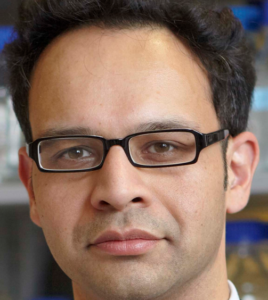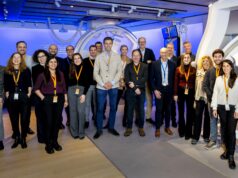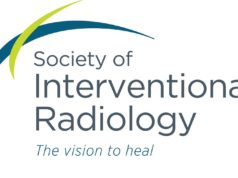
The SIRT Users’ Network of professionals who treat liver cancer is to extend across the UK, Belgium, Spain and Italy
The success of the SIRT Users’ Network, called SUN, in its first two years has created a strong desire for other countries to join. It has been announced today that SUN will expand to include health professionals from the UK, Belgium, Spain and Italy. SUN was established by academics and clinical experts in the UK in 2014 in response to Selective Internal Radiation Therapy (SIRT) with radioactive yttrium-90 microspheres becoming available to patients with cancer via National Health Service commissioning.
The cooperation amongst cancer specialists, radiologists, medical physicists and other professionals involved in delivering this highly specialist service has been valuable in improving the treatment of patients with cancer. It is hoped that the expansion of the network to include professionals from Belgium, Spain and Italy will further enhance that cooperation and mutual sharing of best practice. Members of the network work in a variety of clinical disciplines, such as oncology, interventional radiology, imaging, nuclear medicine, medical physics, pathology and surgery. SUN is unique in bringing together these diverse specialists in a meaningful way to share best practice, clinical experiences, patient information and to organise training masterclasses and workshops. The network is open to all clinicians and scientists involved with delivering SIRT treatment to patients.
Speaking at the launch event for the expansion of the network, Ricky Sharma, professor of radiation oncology, University College London, London, UK, said: “This is a very exciting time for SUN. As a web-based network, we have been delighted at how much interest SUN has generated amongst professionals from a variety of disciplines in Europe, who are now motivated to come together to share best practice for their patients. Our common purpose is to improve treatment for patients with cancer, with SIRT and other interventional oncology therapies. I am very excited about being able to share working knowledge, best practice and clinical outcomes with my colleagues from the UK, Belgium, Spain and Italy. We will all learn from each other. If this expansion is successful in our ability to improve treatment for patients with cancer, SUN is likely to expand to other countries in which interest has been expressed to join this international network.”
About SUN
SUN has an academic focus, and is independent of commissioning and service considerations. The SUN website has a secure “members’ only” discussion forum to allow clinicians to hold private and secure exchanges of views on all aspects of the SIRT procedure and clinical issues. The site also provides freely available resources for clinicians and patients. All the members of SUN are involved in the treatment of cancer patients with SIRT. The remit of the network is to:
- Share and establish best treatment practice for SIRT across and within all clinical disciplines
- Better inform and optimise referral practices and outcomes
- Share research and treatment protocols to improve patient outcomes
- Discuss and share knowledge on academic issues, research and treatment delivery
- Share information about upcoming events, conferences and data milestones
SIRFLOX is the first study assessing the results of adding SIR-Spheres Y-90 resin microspheres to first-line chemotherapy in the treatment of metastatic colorectal cancer (mCRC). The other studies are FOXFIRE, a UK clinical trial that completed enrolment in November 2014, and FOXFIRE Global, an international study that completed enrolment in January 2015. The results of the three studies, which together enrolled more than 1,100 patients with mCRC, will be combined in a preplanned assessment of the overall survival benefit of adding SIR Spheres Y-90 resin microspheres to first-line chemotherapy for mCRC. The combined results are expected in 2017.
Newly published European Society for Medical Oncology (ESMO) clinical guidelines for the treatment of mCRC endorse radioembolization, specifically with Yttrium-90 resin microspheres, as a clinically proven technology to “prolong time to liver tumour progression” in mCRC patients who have failed to respond to available chemotherapy options.










